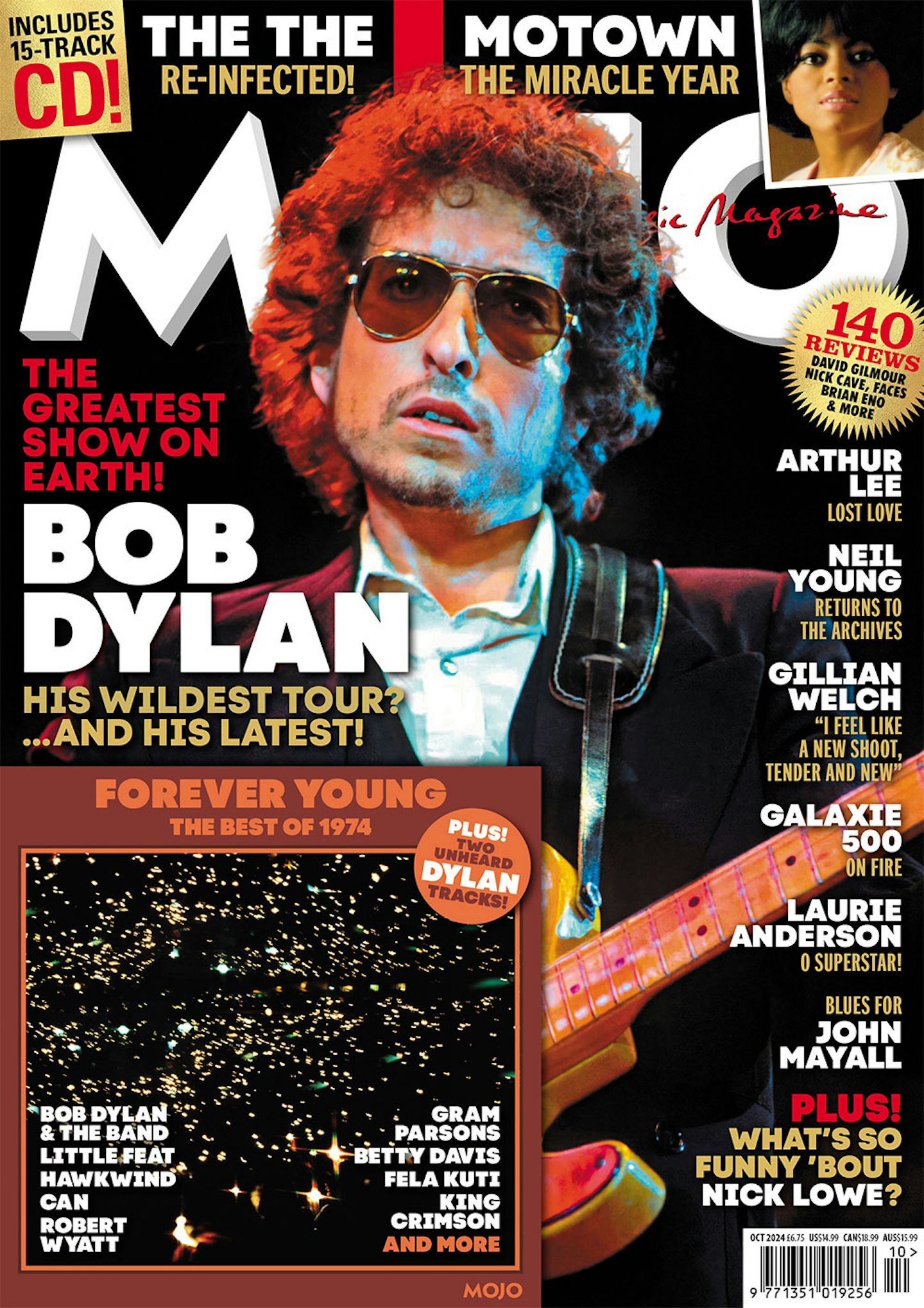This week, Fontaines D.C. release their fourth album, Romance. Recorded with Arctic Monkeys/Depeche Mode producer James Ford, it finds the group further shifting their attention away from the Irish-centric themes of their 2019 breakthrough Dogrel for a more future-facing vision inspired by Japanese manga and Italian cinema, creating a vivid, neon-lit dystopia for the band to explore.
-
READ MORE: Fontaines D.C. Romance Reviewed: "The future is here and it’s alive with possibility...★★★★"
“I wanted to see where we’d go if we let slip that influence,” frontman Grian Chatten tells MOJO’s Keith Cameron. “It’s difficult to paint this vision of a dystopian and futuristic industrial landscape called ‘Romance’, but for it to sound like Ireland.”
Here, Chatten reveals more of Romance's roots, the impact his 2023 solo record on recording and the group’s eyebrow-raising new look...
How did this new album get going?
“We’ve never been a band that set aside a block of time to get together and write, like, ‘Right, guys, we’ve got four weeks here.’ It’s more a constant process. I like that, because you let the tunes breathe, they’re not hurried. And they’re not required to take any form based on the instruments you have available, or in proximity, in the room. I find touring’s good for that reason, because they’re kind of passed around like folk songs. But there is a point where the album seems to rear its head, seems to emerge with a kind of clear spiritual form. For me, it was around the time I wrote the song In The Modern World. I thought, Ah right, that’s it. Now I know where we’re going. I know the colour and the year and the atmosphere and the temperature of this city that we’re soundtracking.”
Is it a real place?
“It’s not, but it is very much informed by places we’ve been to and certain atmospheres at certain times. Like Tokyo at seven or six in the morning. The pigeons have taken flight and the public transport is grinding around the city. Especially now, we write a lot more based on visual references than musical references. It’s easier to be original.”
Why ‘Romance’?
“I read a report a couple years back about us having reached the tipping point in terms of climate change. And I forgot about it – or chose to forget about it. Of course, I think everybody does that in order to get on. But it’s about our ability to laugh, to have fun and fall in love and escape through those means. Not in a positive way necessarily. I think we’re probably closing in on the desensitised disconnect more so than ever, and that’s the kind of place on the album which is called ‘Romance’.”
Did making your solo album impact on this one?
“I got a fair bit of confidence with arranging strings and brass, trying out different styles. Vocally, I probably learned to lean into my own character a bit more. I love my own voice now for the first time in my life. I always hated it, really. And maybe because of that solo record I understand what makes it potentially interesting.”
The band’s latest visual aesthetic is pretty eye-catching.
“There’s nothing better for establishing the sense of creative freedom than embracing the risk that people might not like what you’re doing at the moment. That’s fuckin’ exhilarating, in a way. So it’s just another creative outlet. We’ve got a lot to say in terms of the atmosphere and the mood of the record, and I think it’d be a shame if we just walked out and didn’t commit to the theatre that we created there.”
Read the definitive verdict on all the month's essential new music in the latest issue of MOJO, on sale now. More info and to order a copy HERE.

Picture: Theo Cottle
